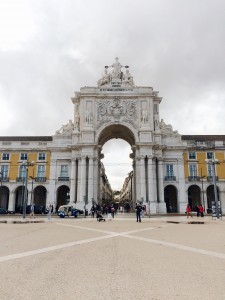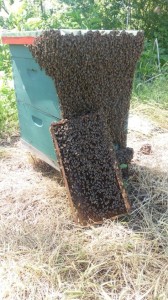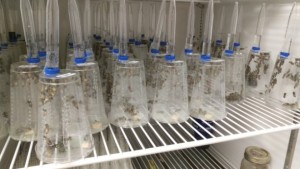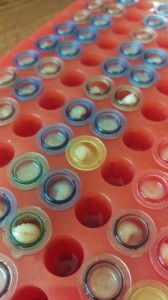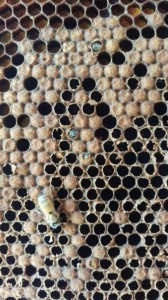This is the next in a series of posts by recipients of the Career Services Summer Funding grant. We’ve asked funding recipients to reflect on their summer experiences and talk about the industries in which they’ve been spending the summer. You can read the entire series here.
This entry is by Naimah Hares, COL ’16
This summer I received the rare opportunity to intern under Tiffany Lawson, the Executive Director of the Pennsylvania Governor’s Advisory Commission of Asian American Affairs. After spending a few months reaching out to Mrs. Lawson and telling her about my background as a Penn student interested in studying law, we agreed to design an internship that would help enrich my learning experience about the state government.
Recently Governor Tom Wolf was elected, and his three main goals for his term are “Government that Works, Schools that Teach, and Jobs that Pay”. Along with these missions, the Commission functions as an advocacy group for all Asian communities in the state of Pennsylvania. In order to assist with this function, I began to create an updated service directory of all organizations that assisted Asian communities as a resource to the public. The project in itself was intriguing as I learned a lot about grassroots organizations that I did not even know; they provided helpful tools such as classes to learn English and assistance for refugees. Growing up in an immigrant family, I was again reminded of the hardships that many foreigners faced when moving to the United States, and I was grateful that these organizations assisted many members of Asian communities adjust to the American Culture.
When I was not working on the directory, I shadowed Mrs. Lawson as she attended numerous meetings and events. I was amazed at how busy one person could be, as she drove from Harrisburg to Philadelphia twice a week (I interned only in Philadelphia) and attended back-to-back meetings. As I quietly observed Mrs. Lawsons interactions with leaders of communities, businesses, and government staff, I learned a lot about the content of the meetings in terms of rising issues in certain communities and why foreign businesses would be interested in investing in parts of Philadelphia. But the most important skills I learned were about simple communication.
Before, I never had experience with networking and talking to people I knew nothing about, but Mrs. Lawson made an art out of it. Always with a big smile on her face, I was astonished at how much energy she had not only in greeting people, but also remembering very specific details about every person and making a conversation out of it. She coached me in being able to talk to other people and not feeling intimidated, and event took me to networking events to practice meeting people and following up with them. But now I feel very comfortable walking up to someone I have never met, having a casual conversation, and remembering that person later.
Thanks to the summer granted through Career Services, I have gathered a priceless experience in a number of areas. Without Mrs. Lawson, I would have never learned that there were amazing communities that existed such as the Bhutanese population in South Philadelphia, and the amount of effort each cultural community organization has put into investing in their community and helping especially immigrants to achieve a better standard of living. Having grown up in an immigrant community myself in West Philadelphia, I truly appreciate the existence of these community associations and organizations and think that their work goes a long way in helping immigrants and their children born in the United States achieve social mobility. In addition, my internship has also made known to me various social issues that I never considered. For example, in 2010 there was an issue regarding deportation among the Cambodian community in Philadelphia, which has influenced a national grassroots organization known as the 1Love Movement to form to assist communities in gaining autonomy.
My most recent and memorable experience at the internship has been attending my first fundraising event in Chinatown. Held at Ocean City Restaurant, the event was held for the Philadelphia Asian American Film Festival, one of the most impressive Asian American Film festivals held on the East Coast. It was an amazing event that raised awareness of the films that would be screened for the festival. I was lucky enough to meet City Councilman and Minority Whip David Oh, as well as a number of important leaders, and saw Mrs. Lawson deliver Governor Wolf’s greeting for the fundraising event. Impressed by the organization of the event (as well as having delicious Chinese food and trying jellyfish for the first time), the most important thing I gathered from the event was how most of the important figures I had met from various events in one room. It showed me the connections various Asian communities, organizations, municipal and state representatives had with each other.
My summer internship, while very enriching and fun, was also very short. However, I am happy to say that Mrs. Lawson has provided the wonderful opportunity to continue interning with her. I am grateful to her for putting in the time and effort to teach me important social skills, meet admirable and influential leaders, and inspire me to do what I can to assist my local Asian community, the Bangladeshi Community of Pennsylvania. I look forward to finishing the service directory, as well as have more experiences to learn about other cultural communities and learn from Mrs. Lawson herself about working for the state.


